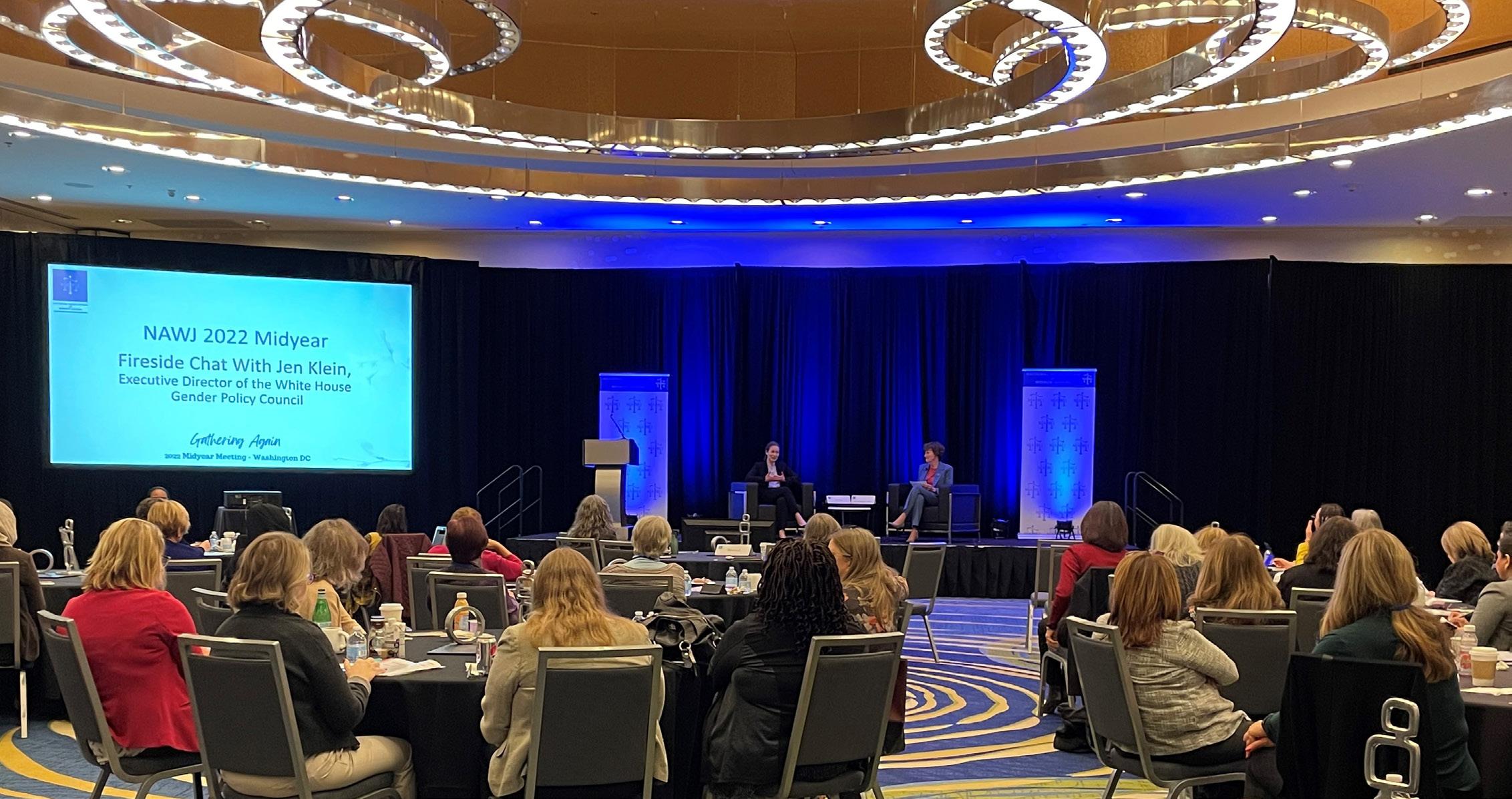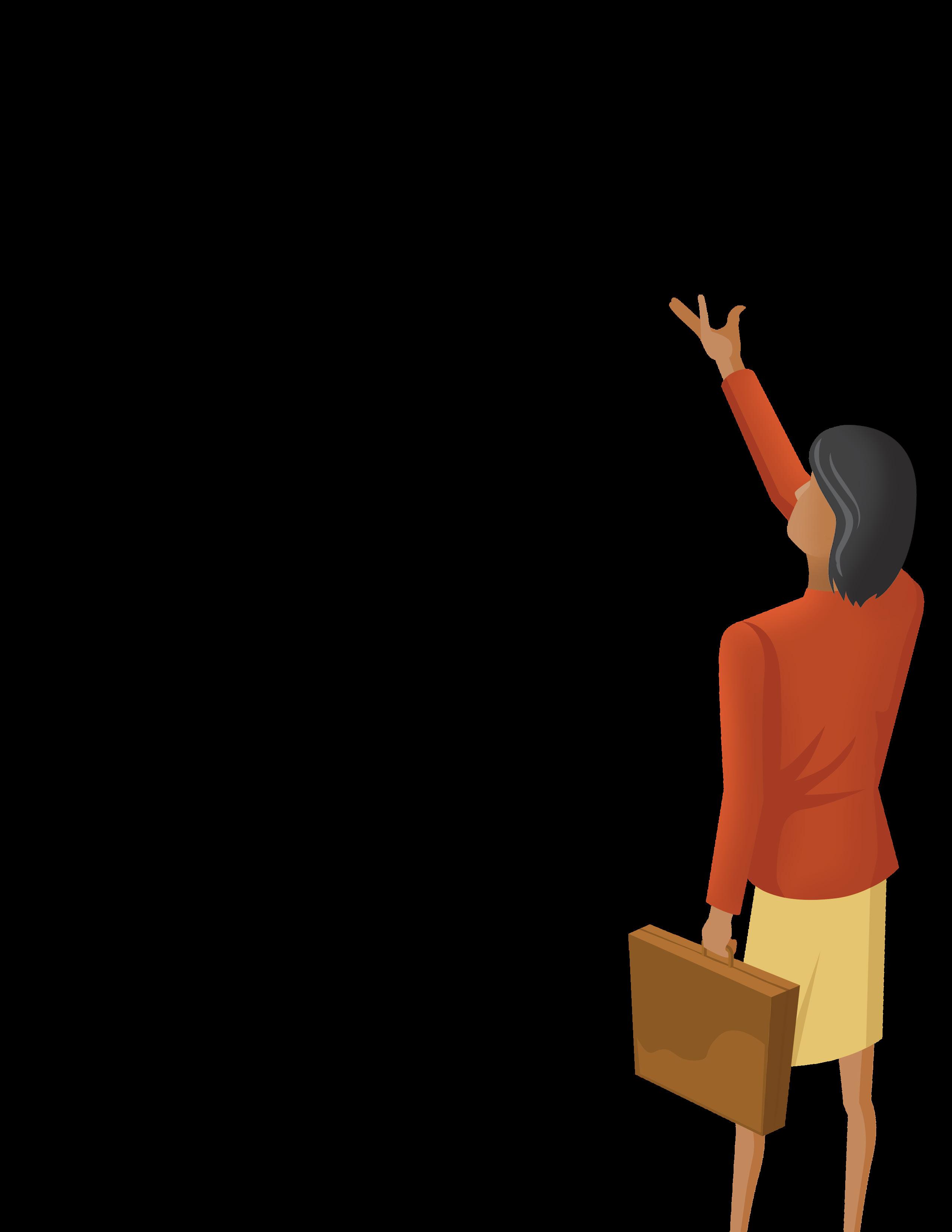
5 minute read
Fairness and Access Starts with Empathy
from Counterbalance - Summer 2022
by NAWJ
By Hon. Diana L. Leyden,
Special Trial Judge, U.S. Tax Court
ecently, I had a conversation with a dear colleague, Nell Newton, who is the current interim dean of the University of Miami Law School. Nell has been a dean in several other schools, and we were discussing the role of empathy in practicing law. She mentioned that she keeps on her desk a sign that says, “It’s not all about me.” I realized that such a saying really is about reminding us to practice empathy.
I began thinking about how practicing empathy makes us better judges. In researching articles about the topic, I stumbled upon Professor Rebecca K. Lee’s article “Judging Judges: Empathy as the Litmus Test for Impartiality, 82 U. Cin. L. Rev. 145 (2013). From her article I concluded that practicing empathy makes me a better judge because it: (1) helps me remain neutral; (2) helps me adhere to my ethical duty to be impartial; and (3) aids me from jumping to conclusions that are comfortable but may ignore how a litigant sees the law and the circumstances that brough him/her/them before me. Some may incorrectly believe that
practicing empathy is ruling with emotion. As Professor Lee points out empathy consists of both mental and emotional components. Thus, empathy is not pure emotion but rather a form of cognitive understanding. It provides us
with the capacity to better comprehend another’s perspective through both knowledge and feeling. It is more than just noting your similarities with and differences from the person who appears before you.
Practicing empathy requires work on our parts. Empathy is the ability to perceive the view of the world or situation from another person’s perspective. As Professor Lee writes, empathy’s goal “is not to encourage conscious generosity toward one side, per se, but rather to ensure that a litigant does not unfairly benefit from unconscious or automatic credibility simply because a judge better understands, or is more familiar with, that party’s story.” 82 U. Cin. Rev. at 153. Practicing empathy allows us to
Fairness and Access Start with Empathy
strive to be neutral because we see the circumstances of the case before us from a different vantage point. As judges we have privileges- wealth, education, status- that most who appear before us do not. If we perceive the circumstances of a case from our privileged vantage point, how can we truly be neutral?
Empathy also assists us in remaining impartial. Looking at our involvement in a case from the lens of Joe and Jane Public might show us that they perceive our involvement as assisting one side over another, thereby assisting us in stepping away from a case and remaining impartial.
Empathy may assist us in making better summary adjudications. We may default to deciding a summary judgment motion based on how we have decided similar issues before. Practicing empathy helps us consider the facts in a summary judgment motion anew by considering the facts in the motion from different lenses and avoid an automatic application of the law.
Professor Lee’s article suggests that practicing empathy tamps down being affected by similarities and differences with litigants and instead taps into shared feelings and aspirations which allows us to see disputes through a different lens. I recommend Professor Lee’s article to all judges and hope that our committee may be able to develop training materials or panels to explore how judges can practice empathy and how doing so may assist them in being the best judges they can.
Diana L. Leyden is a Special Trial Judge. Born in New York; Union College, Schenectady, NY, B.A. magna cum laude,1978; UConn Law School, Hartford, CT, J.D. 1982; Georgetown University Law Center, LL.M. Taxation 1984. Admitted to Connecticut Bar (1982), District of Columbia Bar (1982, inactive) and Massachusetts Bar (1985, inactive); Admitted to U.S. Court of Federal Claims (1983); United States District Court for the District of Connecticut, 2001; United States Court of Appeals for the Second Circuit, 2003; Member of the American Bar Association, Tax Section; Recipient of the American Bar Association Tax Section Janet Spragens Pro Bono Award (2005); former chair of the ABA Tax Section Low Income Taxpayer Committee; Connecticut Department of Revenue Services (1995-1997); UConn Law School Tax Clinic (1999-2015); New York City Department of Finance Taxpayer Advocate (2015-2016). Appointed Special Trial Judge of the United States Tax Court on June 20, 2016.
Understanding Implicit Bias Is a Matter for Mandatory CLE
Continued from page 6
or Implicit Bias. These organizations found value in having their members recognize and address their implicit biases, build cultural competency, and appreciate the importance of diversity and inclusion, so they made training mandatory.
Our failure as a profession to acknowledge our own deficits has had its share of unfortunate consequences. In 1978, the
Indian Child Welfare Act was enacted to correct the most longstanding and egregious removal practices specifically targeting Native children. It was not just social workers and case workers, but also judges, lawyers, and guardians-ad- litem were preferring non-Native placements for Native children. Presumably these were all good hardworking professionals. Could that human computer working in the background lead a person to conclude that only a non-Native placement was in the best interests of a Native child? It is clear unconscious biases played a role in system abuses directed at Native children. Mandatory continuing legal education on cultural competency, diversity, inclusion, and implicit bias will give the legal profession an opportunity to regain some of the ground the legal profession has lost through the years to unconscious biases and move towards regaining and building the public trust in the justice system.
Originally published in the January – March 2022 Alaska Bar Rag
Judge Pamela Scott Washington is cochair of the Alaska Supreme Court’s Fairness, Diversity & Equality Commission and serves on the Cultural Competency Committee. Judge Washington presides over the Coordinated Resource Project (Mental Health Court) in Anchorage and the Criminal and Civil calendar in Sand Point, Alaska







